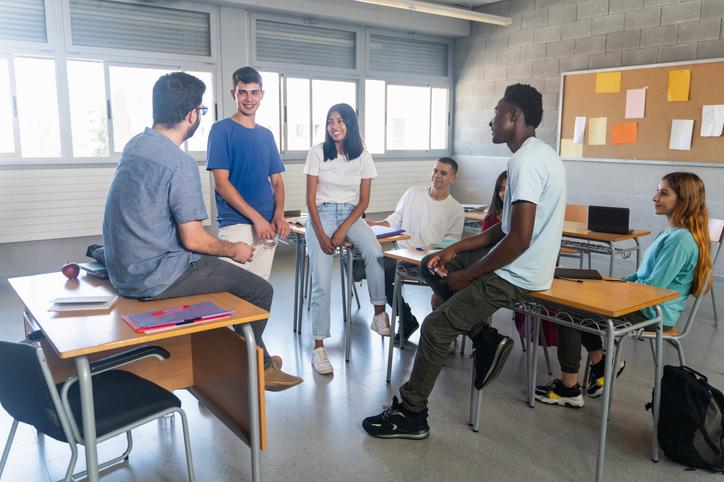
Use student-centred learning strategies to motivate international business students
You may also like
Student-centred learning, which identifies students’ existing strengths and incorporates these into the syllabus, is a useful way to engage international students with varied experience, knowledge and skills. When paired with an understanding of students’ desired outcomes, such as developing the future skills they may need in industry, it can be highly motivating.
If you face the challenge of teaching a global classroom of students who are learning in a second language and unfamiliar environment, here are some things to try:
Mix digital and traditional activities
Digital technology can help to drive student engagement as many are more confident contributing through anonymous posts on digital platforms and less so about speaking in another language in front of their peers. However, as some students prefer speaking over writing, I begin with a mix of digital activities e.g. quizzes and polls using platforms such as Padlet and Menti, and traditional activities such as questions, debates and group discussions. Over time, I encourage students to develop their weaker skills so that everyone becomes confident speaking and writing in a second language.
Develop professional skills
Universities should work with employers to identify desirable skills and find ways to develop these in the classroom. University of Chester’s discussions with local employers and business representatives identified problem-solving, adaptability, reflection, self-direction and collaboration as important to employers. Using this information, we adapted an individual 4,000-word report traditionally used to assess students taking a master’s course in international marketing into a group project. Groups acted as a marketing team and collaborated to develop a marketing plan before presenting their plans on Microsoft Teams. They were assessed in relation to the following learning outcomes: analysis, evaluation and synthesis of theory/industry research and critical thinking.
- Resource collection: Back to the basics of pedagogy
- Using fun and interactive micromodules to energise learning
- Making group work work: how to enable successful student collaboration
Facilitate active learning
Active learning – when students interact and engage in the learning process to develop understanding, for example, through problem-solving, group work or debate – rather than passively receiving knowledge, avoids an over-reliance upon writing, which for those writing in a second language can be overwhelming, while developing important professional skills.
Furthermore, international students naturally co-operate, translating for each other in class and working together outside the classroom. So, team-based learning makes sense. Instead of setting individual tasks, incorporate teamwork into the classroom by setting industry-based problem-solving.
For example, business students can choose a scenario from the news or industry press featuring a company facing a takeover threat, a product launch or a new opportunity in the macro or microenvironment. Working in groups, students can research relevant academic theory and industry practice, discuss how this theory/research relates to the scenario and collectively debate and select a strategy that they present to the class or share on a digital platform. The lecturer should act as the facilitator, suggesting different tasks for group members, directing reading and research and moderating discussion, praising or challenging formative strategies and providing feedback on the final strategies.
Adopt authentic assessment methods
Collaborating with companies to develop live assessment briefs offers ongoing, flexible engagement with industry. Lecturers should talk to their institution’s careers and professional development teams to identify existing industry collaborators or reach out to relevant businesses who may have a project they would like students to engage with.
I worked with a brand to develop a marketing communications assessment related to a UK product launch. The live assignment launched on day one of the module, and required students to research and develop a campaign for several weeks. Students got valuable industry experience and positive feedback from the brand, which celebrated the students’ international perspective.
International students face challenging, unfamiliar learning environments. We can support them to succeed by offering them student-centred learning opportunities that identify and make use of their strengths, and the chance to develop professional skills and engage with industry. This is our aim at the University of Chester through our future skills curriculum that aims to embed future-facing skills and competencies across all years and all courses, so that all students can demonstrate and articulate their accomplishments to future employers.
Giselle Bate is a senior lecturer at the University of Chester.
If you would like advice and insight from academics and university staff delivered direct to your inbox each week, sign up for the Campus newsletter.




